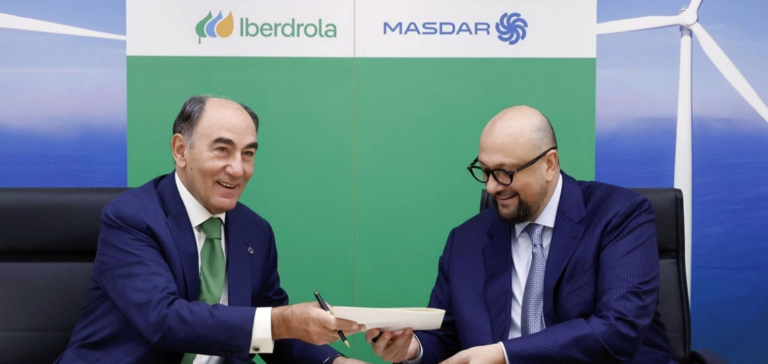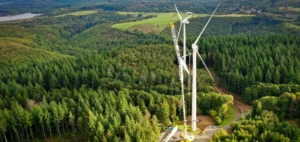After obtaining the necessary regulatory approvals, the companies concluded the agreement announced last July to co-invest in the 476 megawatt (MW) Baltic Eagle offshore wind farm. Iberdrola has signed a strategic agreement with Masdar, a leading Abu Dhabi-based renewable energy group, to co-invest in the 476 MW Baltic Eagle offshore wind farm in the German Baltic Sea.
Details of Baltic Eagle wind farm
Following confirmation that all necessary regulatory approvals have been obtained, Iberdrola will hold a 51% majority stake in the project, helping to accelerate energy independence in Europe. Under the terms of the transaction, 100% of the project is valued at around 1.6 billion euros. Iberdrola will control and manage the assets, providing operation and maintenance services as well as other corporate services.
Iberdrola’s commitment to decarbonization
In July, Ignacio Galán, Executive Chairman of Iberdrola, and Masdar CEO Mohamed Jameel Al Ramahi signed the agreement as part of a broader commitment between two clean energy powers. Both parties consider this transaction to be strategically important, and a crucial step in strengthening a partnership that will enable them to explore further investment opportunities in renewable energies, across different technologies and regions.
Other Iberdrola strategic alliances
Baltic Eagle will comprise 50 wind turbines, each with a capacity of 9.53 MW, built on monopile foundations. The project will produce 1.9 (TWh) of clean electricity each year, enough to meet the demand of 475,000 households and avoid the emission of 800,000 tonnes of CO2 into the atmosphere every year. Similarly, this wind farm, scheduled to come on stream by the end of 2024, benefits from a minimum regulated tariff of 64.6 euros per (MWh) for the first 20 years.
In recent months, Iberdrola has entered into several long-term alliances to promote the decarbonization of the economy. In September, Iberdrola signed an agreement with GIC to form a strategic alliance for the expansion of transmission networks in Brazil, worth 430 million euros. In addition, an agreement has been reached with Norges Bank Investment Management to co-invest in 1,265MW of new renewable capacity in Spain. The company signed an agreement to sell over 8,400MW of gas-fired combined-cycle power plants in Mexico for $6 billion.
This collaboration between Iberdrola and Masdar for the Baltic Eagle offshore wind farm reinforces their commitment to renewable energies and the energy transition in Europe. The project promises to provide a significant amount of clean electricity while helping to reduce CO2 emissions. This initiative is in line with Iberdrola’s ongoing efforts to promote decarbonization and sustainable growth.






















